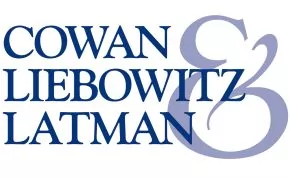When can the U.S. Patent and Trademark Office require you to make a disclaimer in your application to register a mark, what does it mean, and when can you resist doing so?
When filing a trademark application, there are multiple steps. If the examining attorney determines that there is an issue, he or she will send an office action to the applicant. There are many issues that may be raised in an office action that can prevent a trademark from being registered. One of them is a disclaimer requirement.
A disclaimer is a statement that the applicant does not claim the exclusive right to use a descriptive, generic, geographic, or otherwise unregistrable wording, design or symbol apart from the mark as shown in the application. The reason for the disclaimer is that anyone should be free to use that component in other marks.
However, a component need not be disclaimed if it is part of a single composite or unitary mark. Such a mark creates a commercial impression separate and apart from any unregistrable component. The test for determining a unitary mark involves evaluating whether the elements of a mark are so integrated or merged together that they cannot be regarded as separable.
The Case
A clear example of this involved an intent to use application filed by Corporate Green LLC, who sought to register BIG BARK for "tree care services."
The examining attorney refused registration unless the applicant disclaimed the exclusive right to use the word BARK apart from the mark as shown. The applicant appealed this refusal to the Trademark Trial and Appeal Board (TTAB), asserting that a disclaimer should not be required because BIG BARK is a unitary mark.
The TTAB reviewed the applicant's specimen of use to determine whether the term "BIG BARK" constituted a unitary mark. The TTAB reasoned that reviewing the specimen was necessary because "the specimens filed with an application show the mark as used on or in connection with the goods and therefore how the average purchaser would encounter the mark under normal marketing of such goods."

TTAB Analysis
The TTAB noted that "Big Bark" does not have a well-known or common meaning. The TTAB further noted that the examining attorney failed to submit evidence showing the term "Big Bark" was used in connection with trees or tree care services. The TTAB determined that the combination of "Big" and "Bark" forming the composite mark BIG BARK had a distinct meaning of its own, independent of the meaning of its constituent elements, and engendered a commercial impression separate and apart from the word "Bark."
The TTAB observed that the analysis of the mark in this appeal was similar to the analysis employed in In re Kraft, 218 USPQ 571, 573 (TTAB 1983), where the TTAB had found LIGHT 'N LIVELY for reduced calorie mayonnaise to be a unitary mark based not only on the "alliterative lilting cadence" of the wording but also on the fact that the mark as a whole "has a suggestive significance which is distinctly different from the merely descriptive significance of the term 'LIGHT' per se" and that "the merely descriptive significance of the term 'LIGHT' is lost in the mark as a whole."
Similarly, in the instant matter, the TTAB found that the alliteration of BIG and BARK reinforced the unitary nature of the mark.
For these reasons, the TTAB concluded that the mark BIG BARK was in fact unitary and reversed the refusal to register. The TTAB pointed out that the registration of BIG BARK cannot preclude others from making fair use of the term "Bark" (meaning the skin of a tree) in describing their tree care services.
In re Corporate Green, LLC, Application No. 87519612 (June 30, 2021).
Author's Note: A unitary mark determination is based on particular facts. In addition to the above-mentioned considerations—a well-known or common meaning, third party uses, alliteration, or suggestive significance—a mark may be found to be unitary for a variety of other reasons including, among other things, telescoped wording (ORDERRECORDER), hyphenation (TIRE-X), an attention-getting slogan (HAIRCOLOR SO NATURAL ONLY YOUR HAIRDRESSER KNOWS FOR SURE), verbal amalgamation (TAKE THIS MEDICINE), or a relationship indication (MANGOES FOR THE EARTH).
The content of this article is intended to provide a general guide to the subject matter. Specialist advice should be sought about your specific circumstances.

